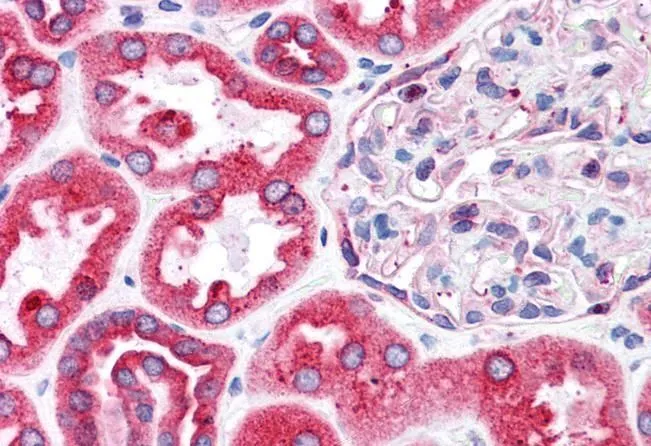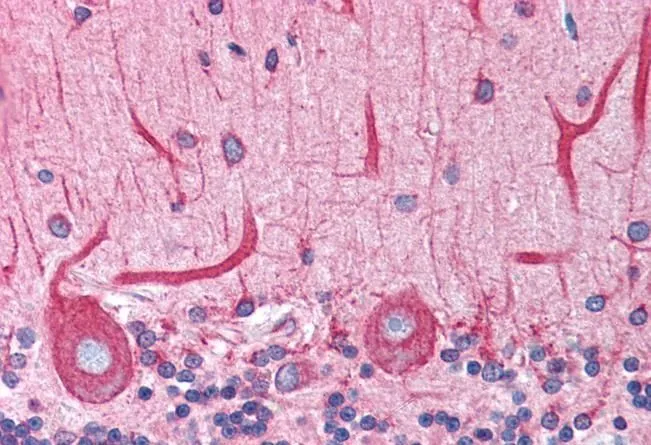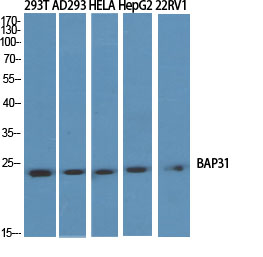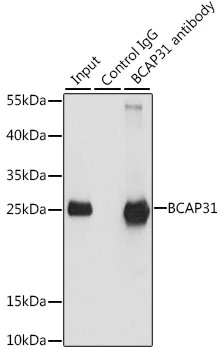
IHC-P analysis of human kidney using GTX10924 BCAP31 antibody, C-term. Antigen retrieval : citrate buffer pH 6 Dilution : 3.75μg/ml
BCAP31 antibody, C-term
GTX10924
ApplicationsWestern Blot, ImmunoHistoChemistry, ImmunoHistoChemistry Paraffin
Product group Antibodies
ReactivityHuman
TargetBCAP31
Overview
- SupplierGeneTex
- Product NameBCAP31 antibody, C-term
- Delivery Days Customer7
- Application Supplier NoteWB: 1-3microg/ml. IHC-P: 3.75microg/ml. *Optimal dilutions/concentrations should be determined by the researcher.Not tested in other applications.
- ApplicationsWestern Blot, ImmunoHistoChemistry, ImmunoHistoChemistry Paraffin
- CertificationResearch Use Only
- ClonalityPolyclonal
- Concentration0.50 mg/ml
- ConjugateUnconjugated
- Gene ID10134
- Target nameBCAP31
- Target descriptionB cell receptor associated protein 31
- Target synonyms6C6-AG, BAP31, CDM, DDCH, DELXQ28, DXS1357E, MICRODELXq28, B-cell receptor-associated protein 31, 6C6-AG tumor-associated antigen, BCR-associated protein Bap31, p28 Bap31
- HostGoat
- IsotypeIgG
- Protein IDP51572
- Protein NameB-cell receptor-associated protein 31
- Scientific DescriptionThis gene encodes a member of the B-cell receptor associated protein 31 superfamily. The encoded protein is a multi-pass transmembrane protein of the endoplasmic reticulum that is involved in the anterograde transport of membrane proteins from the endoplasmic reticulum to the Golgi and in caspase 8-mediated apoptosis. Microdeletions in this gene are associated with contiguous ABCD1/DXS1375E deletion syndrome (CADDS), a neonatal disorder. Alternative splicing of this gene results in multiple transcript variants. Two related pseudogenes have been identified on chromosome 16. [provided by RefSeq, Jan 2012]
- ReactivityHuman
- Storage Instruction-20°C or -80°C,2°C to 8°C
- UNSPSC41116161










